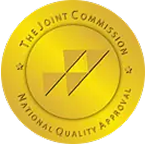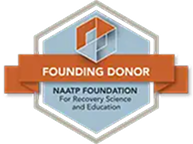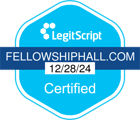6 Strategies to Avoid Relapse Triggers
6 Strategies to Avoid Relapse Triggers

Protecting your recovery at all costs must be emphasized at every stage of recovery. Because relapse starts well before a person picks up a drink or a drug, it is essential to understand what your relapse triggers are. You may ask, “What the heck is a trigger?” A trigger can be described as a person, place, thing, feeling, or situation that leads to a thought that taking a drink or using a drug would be a good idea.
It the responsibility of the person in recovery to identify and know their own triggers. A trigger prompts a thought, which if romanced, can become a craving. A craving can become a relapse if action is not taking to deal with it. Smash that thought, play the tape to the end, and remember the pain you felt in active addiction. Remember the H.A.L.T concept. When you become restless, irritable, and discontent, ask yourself, “Am I hungry, angry, lonely, or tired?” If so, these feelings could increase the risk of relapse. Only you have the power to address these feelings with the recovery tools you now possess.
As it relates to personal relationships, we encourage people new to recovery to avoid triggers by focusing on developing healthy communication skills first. It is helpful to learn to be emotionally intimate with peers before diving headfirst into a relationship rooted in physical attraction. In early recovery, the newcomer is still developing healthy emotional coping skills. Romantic relationships can distract a person and keep them from focusing on sobriety, which often leads to a quick relapse. The newcomer is an infant in emotional sobriety, most have used alcohol or drugs to cope with emotions.
Living in recovery will give you a life worth living. Here are six steps to help you deal with relapse triggers:
- Be aware of complacency, euphoric recall, and forgetting the pain that addiction has caused.
- Be conscious not to drift away from recovery. Regular AA and NA attendance is extremely important. It’s an easy and common mistake for people to reduce meeting attendance, stop calling a sponsor, or just stop going to AA/NA altogether!
- Talk about feelings openly in meetings and with a sponsor. Most people will never heal what they do not feel.
- Remember, the brain chemistry has been changed. You WILL be triggered at some point in time but don’ allow a trigger to be romanced into a craving.
- Remember to assess your motives for being around certain people or going certain places.
- Think before you drink or use. The time to call that sponsor is before, not after!
Even with the best-laid plans to avoid relapse triggers and prevent relapse, the risk is always there. If you get caught off guard and slip-up, it does not mean that you are a failure and doomed to addiction forever. Recovery is still possible, but the sooner you act after a relapse the better.
Joe Peascoe, MS, CRC, LCAS, LPC-A
About Fellowship Hall
Fellowship Hall is a 99-bed, private, not-for-profit alcohol and drug treatment center located on 120 tranquil acres in Greensboro, N.C. We provide treatment and evidence-based programs built upon the Twelve-Step model of recovery. We have been accredited by The Joint Commission since 1974 as a specialty hospital and are a member of the National Association of Addiction Treatment Providers. We are committed to providing exceptional, compassionate care to every individual we serve.






